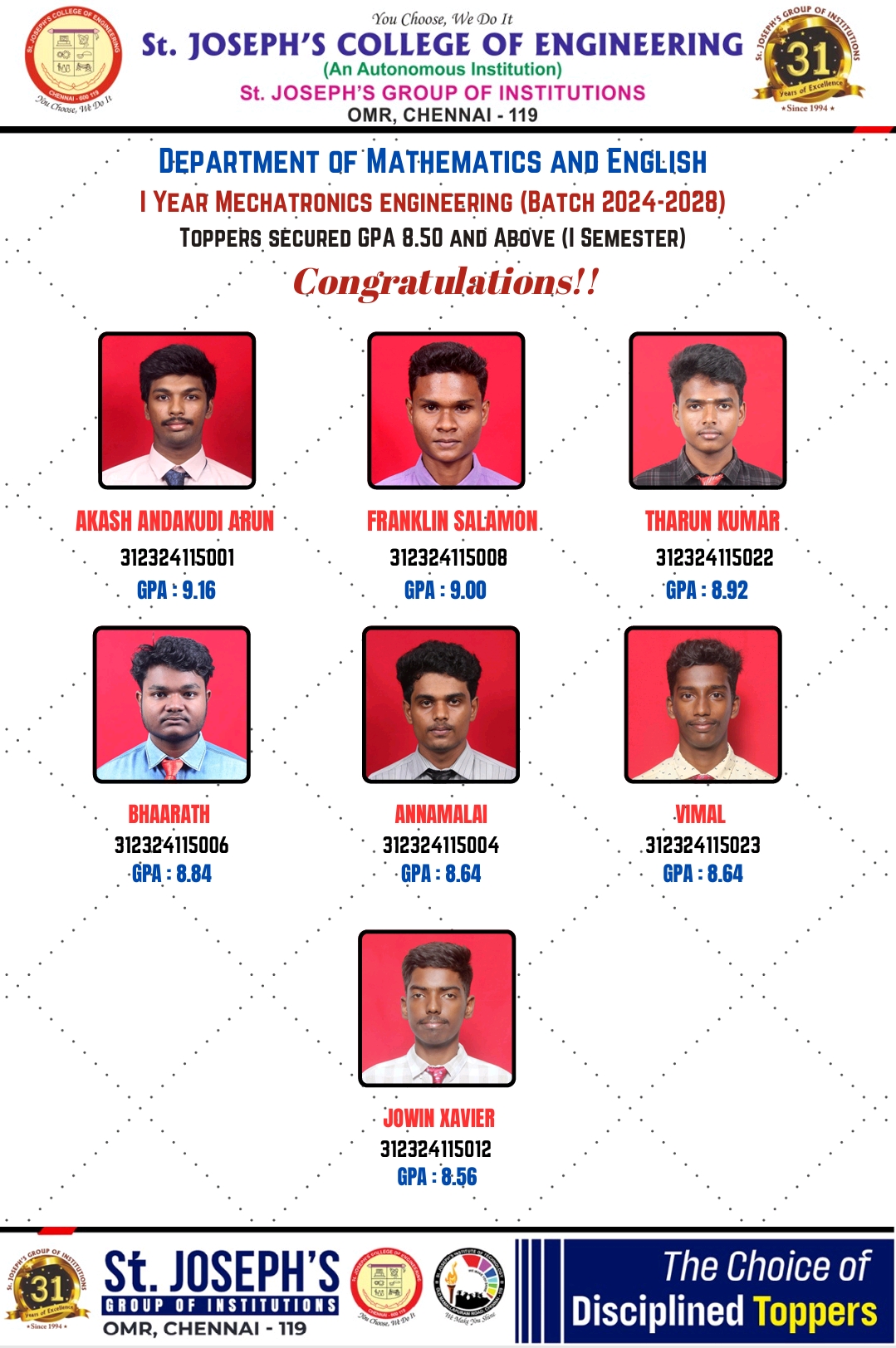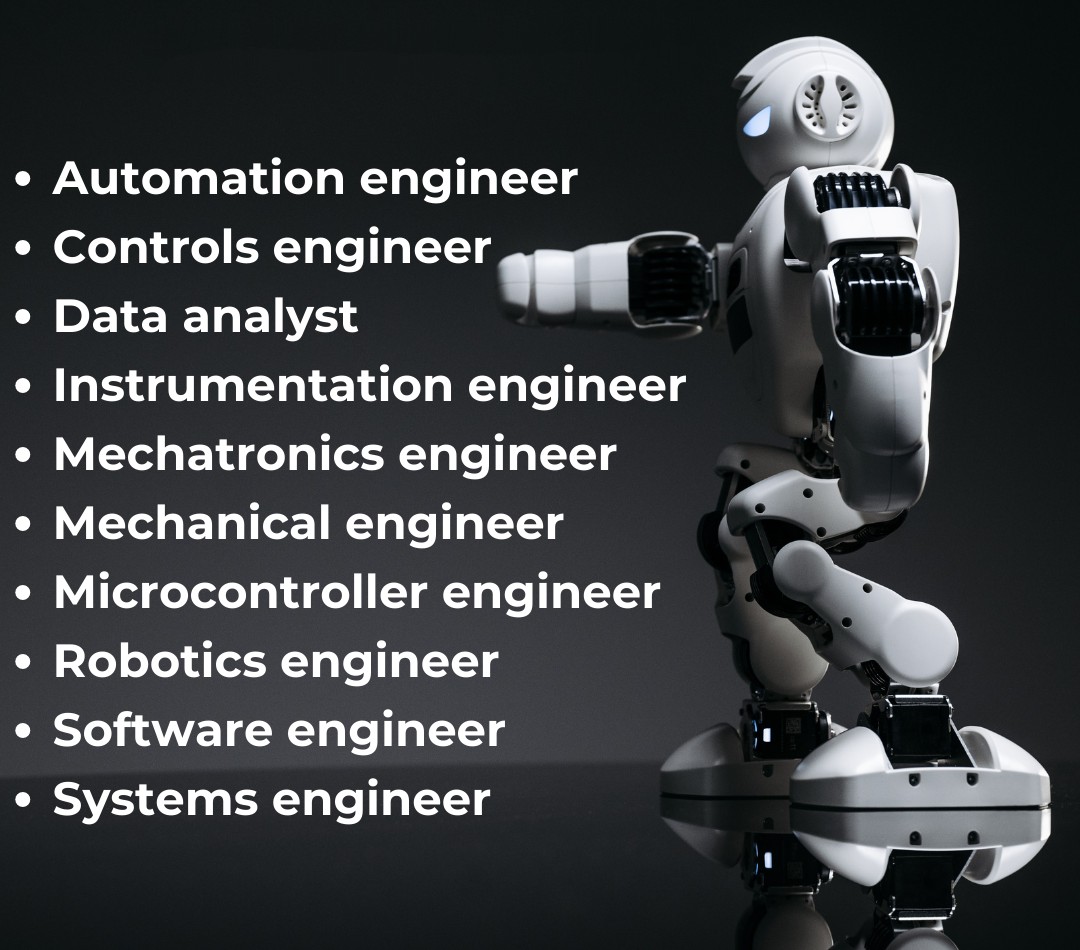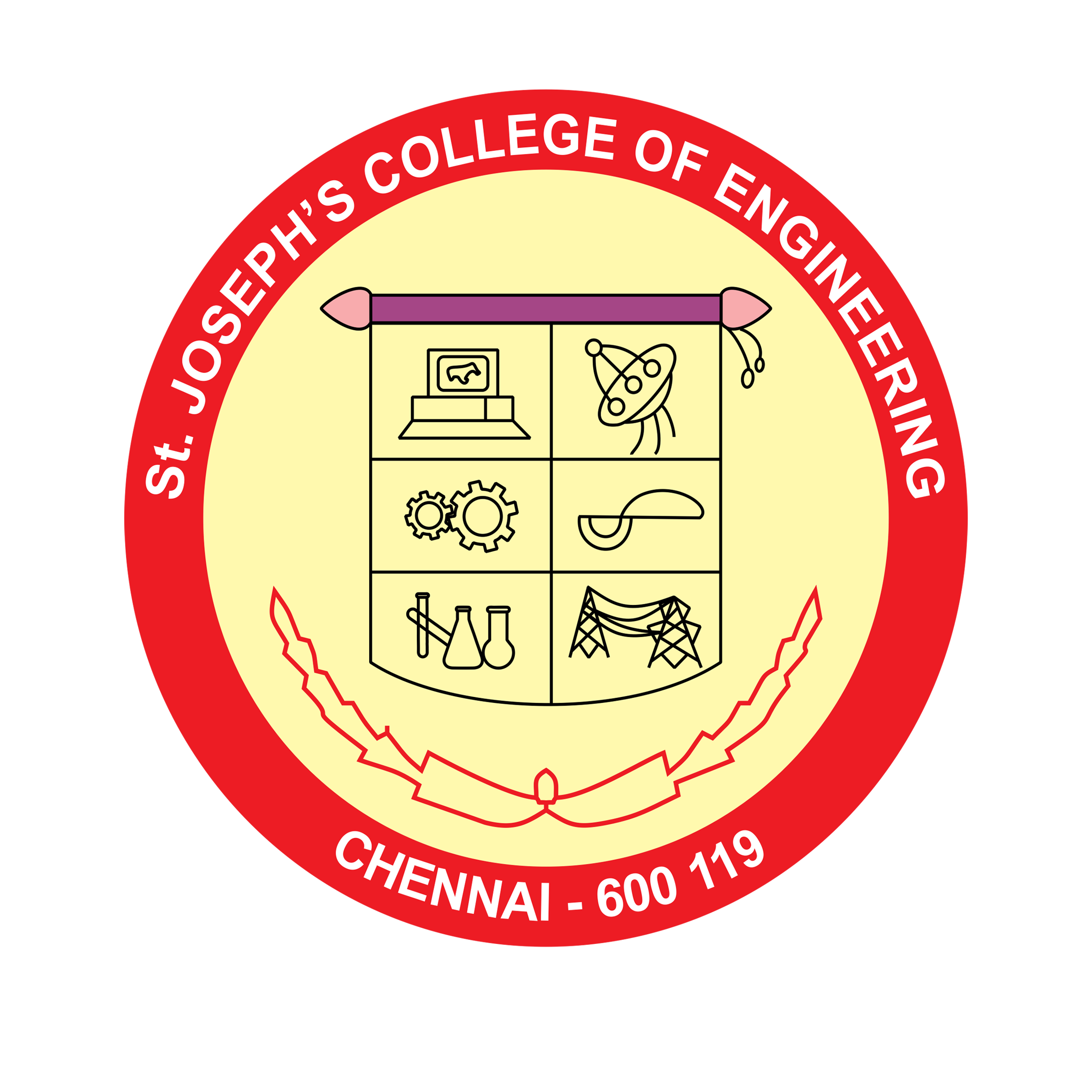Home
HomeAbout the department

The Department of Mechatronics Engineering was established in 2024 with a sanctioned student intake of 30 to meet the demands of industry that currently seek students with multidisciplinary skills and abilities. It is crucial to keep ahead of the curve in domains like automation, robotics, and industry 4.0. The department is empowering students to address real-world challenges and adjust to the changing needs of industries including manufacturing, healthcare, and AI development by placing a strong emphasis on practical, hands-on training.
Vision of the department
-
To provide a leading mechatronics engineering program that prepares students to devise intelligent and sustainable solutions through the automation and digitization of technologies, resulting in innovative outcomes.
Mission of the department
-
M1. To produce high-calibre Mechatronics Engineers through an efficient system of instruction so that they can fill the world's demands as entrepreneurs or professionals.
-
M2. To create an exceptional mechatronics engineering curriculum that teaches students to think critically and creatively about problems. Students then use that knowledge to automate and digitize existing technologies in novel ways, producing cutting-edge solutions.
-
M3. To prepare our students to be flexible thinkers who can meet the demands of a dynamic global economy while maintaining the highest standards of professional ethics so that India can join the ranks of the world's most technologically advanced and economically prosperous nations.
Program Educational Objectives (PEOs)
PEO1: Profession: Practice manufacturing engineering in a broad range of industries both core engineering and non-engineering fields such as medicine, space, law or business.
PEO2: Continuing Education: Pursue advanced education, research and development, and other creative and innovative efforts in science, engineering, and technology, as well as other professional careers.
PEO3: Technophile: Conduct them in a responsible, professional, and ethical manner and attain professional maturity with deep understanding of the impact of the technological solutions in a societal and global context and a need for sustainable development.
PEO4: Service: Participate as leaders in their fields of expertise and in activities that support service and economic development nationally and throughout the world.
Program Outcomes (POs)
Engineering graduates will be able to:
1. Engineering Knowledge: Apply the knowledge of mathematics, science, engineering fundamentals, and an engineering specialization to the solution of complex engineering problems.
2. Problem analysis: Identify, formulate, review research literature, and analyze complex engineering problems reaching substantiated conclusions using first principles of mathematics, natural sciences, and engineering sciences.
3. Design/development of solutions: Design solution for complex engineering problems and design systems components or process that meet the specified needs with appropriate consideration for the public health and safety, and the cultural, societal, and environmental considerations.
4. Conduct investigations of complex problems: Use research- based knowledge and research methods including design of experiments, analysis and interpretation of data, and synthesis of the information to provide valid conclusions.
5. Modern tool usage: Create, select, and apply appropriate techniques, resources, and modern engineering and IT tools including prediction and modeling to complex engineering activities with an understanding of the limitations.
6. The engineer and society: Apply reasoning informed by the contextual knowledge to assess societal, health, safety, legal and cultural issues and the consequent responsibilities relevant to the professional engineering practice.
7. Environmental and sustainability: Understand the impact of the professional engineering solutions in societal and environmental contexts and demonstrate the knowledge of, and need for sustainable development.
8. Ethics: Apply ethical principles and commit to professional ethics and responsibilities and norms of the engineering practice.
9. Individual and team work: Function effectively as an individual, and as a member or leader in diverse teams, and in multidisciplinary settings.
10.Communication: Communicate effectively on complex engineering activities with the engineering community and with society at large, such as, being able to comprehend and write effective reports and design documentation, make effective presentations, and give and receive clear instructions.
11.Project management and finance: Demonstrate knowledge and understanding of the engineering and management principles and apply these to one’s own work, as a member and leader in a team, to manage projects and in multidisciplinary environments.
12.Life-Long learning: Recognize the need for, and have the preparation and ability to engage in independent and life-long learning in the broadest context of technological change.
Program Specific Outcomes (PSOs)
1. Mechatronics Engineering graduates will have the strong academic and practical skills in mathematics, science, and engineering that employer’s need, as well as the analytical and problem-solving abilities to handle both technical and non-technical issues.
2. The Mechatronics Engineering degree equips students with the knowledge and skills necessary to synthesize engineering data and apply scientific concepts to industrial engineering applications using advanced computer aided design (CAD) software and programs such as MATLAB, SIMULINK, SCADA, and LabVIEW.
3. Students who complete the Mechatronics Engineering program will be well-prepared for leadership roles in their chosen fields, with the knowledge and skills necessary to adhere to professional and ethical standards, value diversity in the workplace, and develop innovative, cost effective solutions to engineering problems.
Academics
Toppers List
Toppers Secured 8.50 & Above GPA (I Semester) 2024-2025

Laboratory
Department of Mechatronics Engineering
List of Laboratories
Manufacturing Technology Laboratory
Electrical Engineering Laboratory
Embedded systems and IoT Laboratory
Microprocessor and Microcontroller Laboratory
Hydraulics and Pneumatics Laboratory
Design Studio
Design and Modelling Laboratory
Proto Fabrication Studio
Robotics and Process Automation laboratory
Machine vision and Image processing Lab
IIOT LAB
Career Options After Mechatronics








